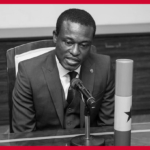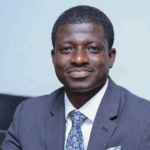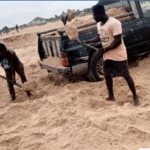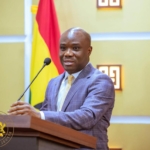
The International Monetary Fund (IMF) has delivered a pointed critique of Ghana’s Office of the Special Prosecutor (OSP), indicating that the institution risks continued failure in confronting major corruption cases due to fundamental structural weaknesses, chief among these weaknesses is the lack of a clear, consistent, and enforceable charging policy.
The IMF’s Ghana Governance Diagnostic Assessment, released this month, reveals that while the OSP has been legally empowered since its establishment under the 2017 Act, it does not possess the internal systems required to determine when a case is strong enough to proceed to court.
According to the report by analyzed by JoyNews Research, this gap lies at the heart of the OSP’s struggle to secure convictions in high-profile corruption cases.
The IMF notes with concern that “there is currently no clear and consistent policy in place at the OSP which determines when a case meets the legal and evidential burdens for proceeding to charge and assessing whether it is likely to result in a conviction.”
The absence of such a policy, it argues, creates serious inconsistencies in decision-making. It states that Prosecutors lack a uniform benchmark for assessing evidence, determining whether a case is ready for court, or evaluating its likelihood of success.
This could mean cases may be rushed to court without being fully prepared, abandoned mid-process, or inconsistently pursued depending on who handles them. According to the IMF, the consequences of this policy vacuum weaken public trust in the institution’s choices and contribute to uncertainty about its prosecutorial strategy.
This weakness is directly linked to the OSP’s inability to secure major corruption convictions. The report states that “successful high-level prosecutions are not common and, unless action is taken, this could remain the case for a long time.”
The Fund attributes this trend not only to the absence of a charging policy but also to deeper structural limitations, including serious deficiencies in staffing, technical tools and investigative equipment.
Despite possessing the legal authority to gather intelligence and prosecute corruption-related crimes, the OSP “lacks sufficient resources” and does not have the personnel or modern tools required to match the sophistication of suspects in major corruption cases.
The IMF observes that defendants in high-stakes corruption investigations “typically have powerful defense teams with ready access to modern equipment and methods,” giving them significant advantages in litigation. The OSP, meanwhile, “operates with significant staff shortages, lack of training in some respects, and lack of reliable access to modern sophisticated equipment.”
The Fund warns that these disparities could determine whether major corruption cases succeed or collapse in court. Even before reaching the prosecutorial stage, these gaps hinder the OSP’s ability to investigate all cases referred to it, potentially causing promising cases to stall or be deprioritized.
Beyond capacity constraints, the IMF flags serious weaknesses in the OSP’s public transparency. The report notes that only “a limited amount of data relevant to performance is provided on the OSP’s website,” and it remains unclear how many cases are initially reviewed, how many advance to investigation, and how many reach prosecution. The IMF adds that it is not apparent how frequently this data is updated. This lack of clarity makes it difficult to track the OSP’s effectiveness or understand the basis on which its prosecutorial decisions are made.
The IMF also points out that available information suggests most OSP investigations and prosecutions target individuals who do not currently hold, or have never held, senior government positions. In the absence of a public policy explaining how cases are selected, the report warns that speculation is unavoidable.
Without clear principles guiding prioritization, the public cannot determine whether the OSP is deliberately focusing on smaller cases or whether weaknesses in evidence gathering and analysis make it difficult for the institution to pursue high-level targets.
A major factor worsening this situation is what the IMF describes as an “analysis gap” at the OSP. The report emphasizes that the office does not have systems for reviewing why cases fail, stall, or collapse.
There is no routine recording of why cases do not proceed to charge, why they are withdrawn once filed, why courts dismiss them, or why they fail at trial. Without this internal feedback loop, the OSP cannot identify patterns of investigative weaknesses, recurring evidentiary issues, or systemic failures in prosecutorial strategy.
To address this, the IMF strongly recommends the creation and implementation of a formal Charging Code. Such a code, commonly used in jurisdictions like the United Kingdom, would require prosecutors to evaluate every case through a two-stage process.
The first stage would determine whether there is “sufficient reliable and credible evidence to provide a realistic prospect of conviction,” taking into account likely defence strategies. Only if this evidential threshold is met should prosecutors move to the second stage, which assesses whether pursuing the charge is in the public interest.
This public interest evaluation, the IMF explains, would consider factors such as the seriousness of the offence, the suspect’s culpability, and harm to victims, community impact, proportionality, and the need to protect sources.
The IMF also urges the OSP to institutionalize a comprehensive data and analytics system. This would require detailed documentation for all future cases, dedicated personnel to build a database of concluded and ongoing cases, and expert analysis to detect patterns indicating investigative or training deficiencies.
Such trends, it believes, could offer the OSP insights into whether weaknesses stem from a lack of training, absence of modern investigative tools, inadequate staffing, or inconsistent application of legal standards.




